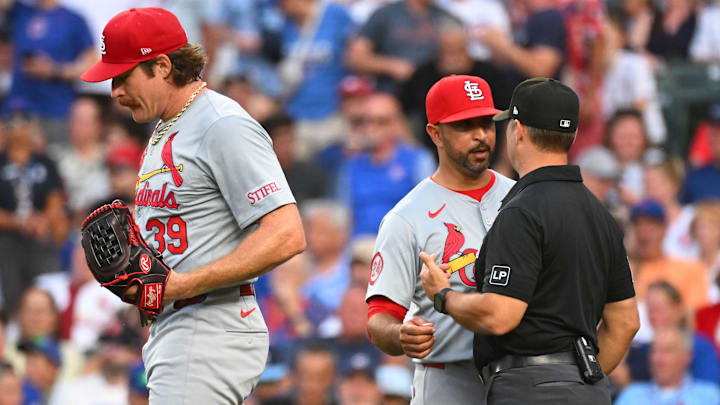Let me start by offering an apology. I thought Miles Mikolas would be better than what he's shown this year. After a rough start, Mikolas had a fantastic May and early June; he was able to drop his ERA nearly a point-and-a-half during a strong six-start stretch, and I figured that expectations were tempered for the veteran right-hander to a level where he only needed to be a serviceable fourth starter.
He simply hasn't met those standards this year for the St. Louis Cardinals. He's been extremely available this year, so much so that he leads the staff in games started (23) and innings pitched (128.1). The issue is that he's had some terrible outings this year. Yes, Mikolas has shown moments of greatness (6/11 against Pittsburgh and 7/8 against Washington), but he's allowed at least one run -- either earned or unearned -- in every single start but those two this year.
In fact, Mikolas has more outings where he's given up six or more runs than he does games where he's given up zero runs. He's been pitching plenty of innings, but he's taken the team out of the game too many times this year.
Therefore, I would propose that the Cardinals try and offload him via trade this offseason regardless of the financial cost. He's a free agent after the 2025 season, so the Cardinals would only be responsible for covering one year's worth of salary for the right-handed veteran.
With young pitchers like Andre Pallante, Matthew Liberatore, Zack Thompson, Gordon Graceffo, Tink Hence, Quinn Mathews, and Cooper Hjerpe showing promise and rising quickly through the system, Miles Mikolas taking up a rotation spot is something the team can't afford -- financially and strategically -- anymore. Each of those players listed above can, and some have already, pitch at least to the level of Mikolas, and they'll be a fraction of his price next year.
Mikolas is owed $17,666,667 next year, and his luxury tax price goes up to $18,583,333. That's a hefty chunk of change to throw at a pitcher who hasn't had an ERA below 4.78 in two years.
There's not a chance the Cardinals are able to trade Mikolas by himself to any team; his output is simply too low for his cost. John Mozeliak and his underlings will have to get creative to offload Mikolas's salary this offseason, and there are really only three routes they can take this offseason to rid themselves of the onerous contract of Miles Mikolas. I'll evaluate each.
